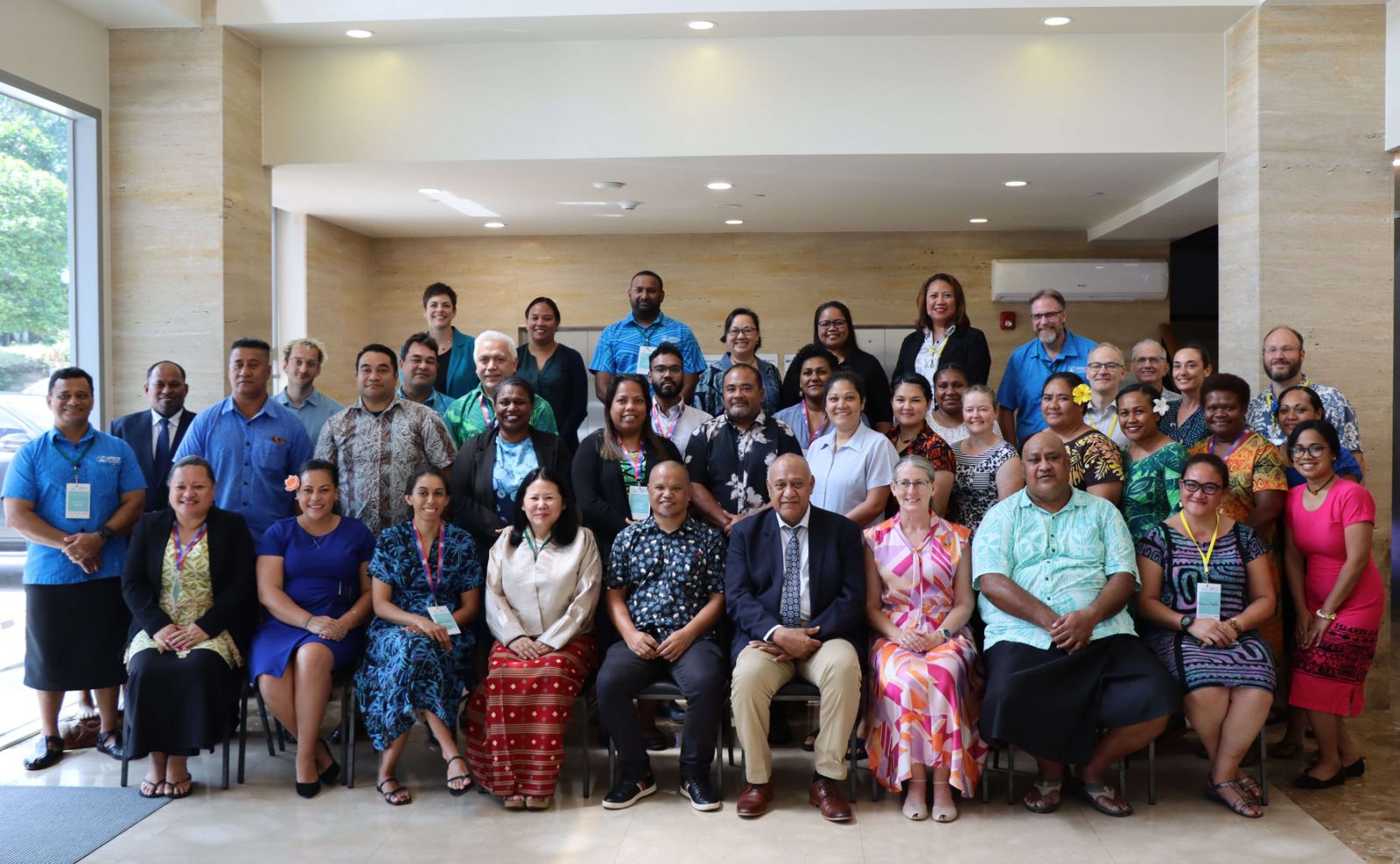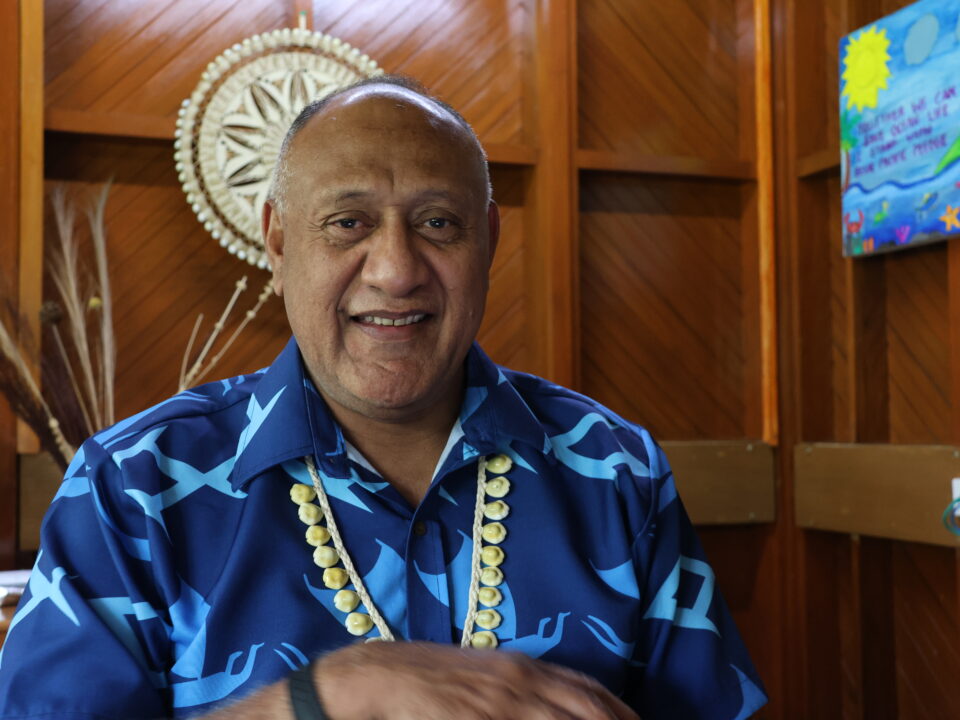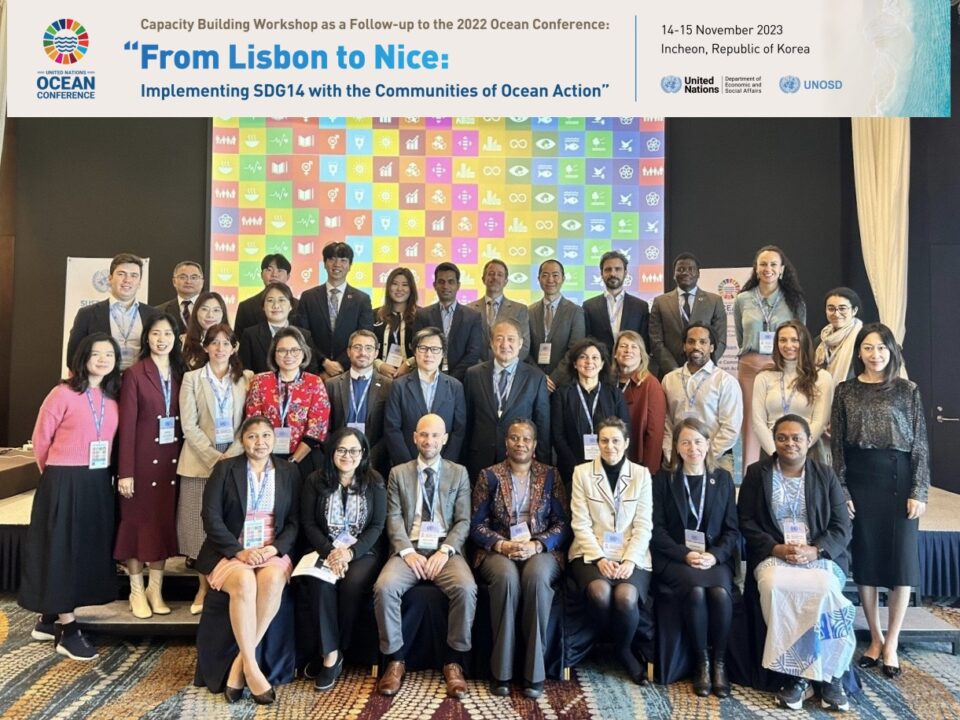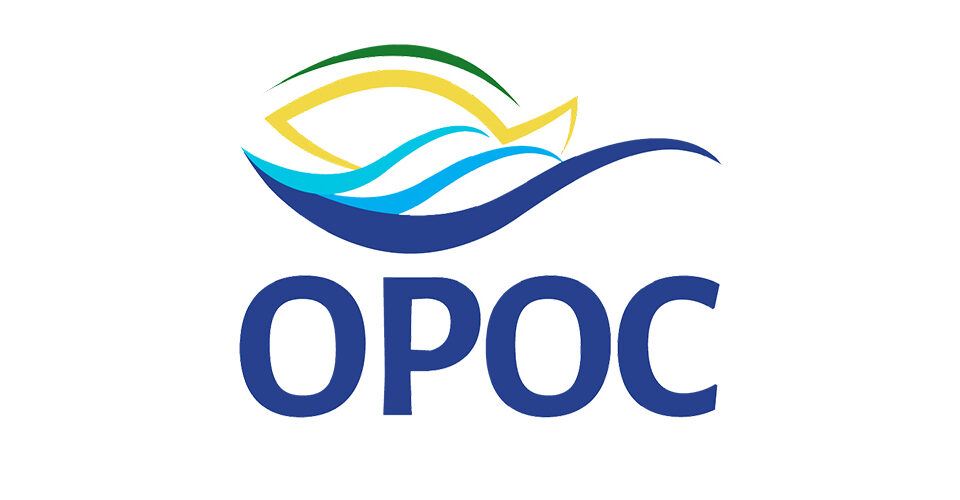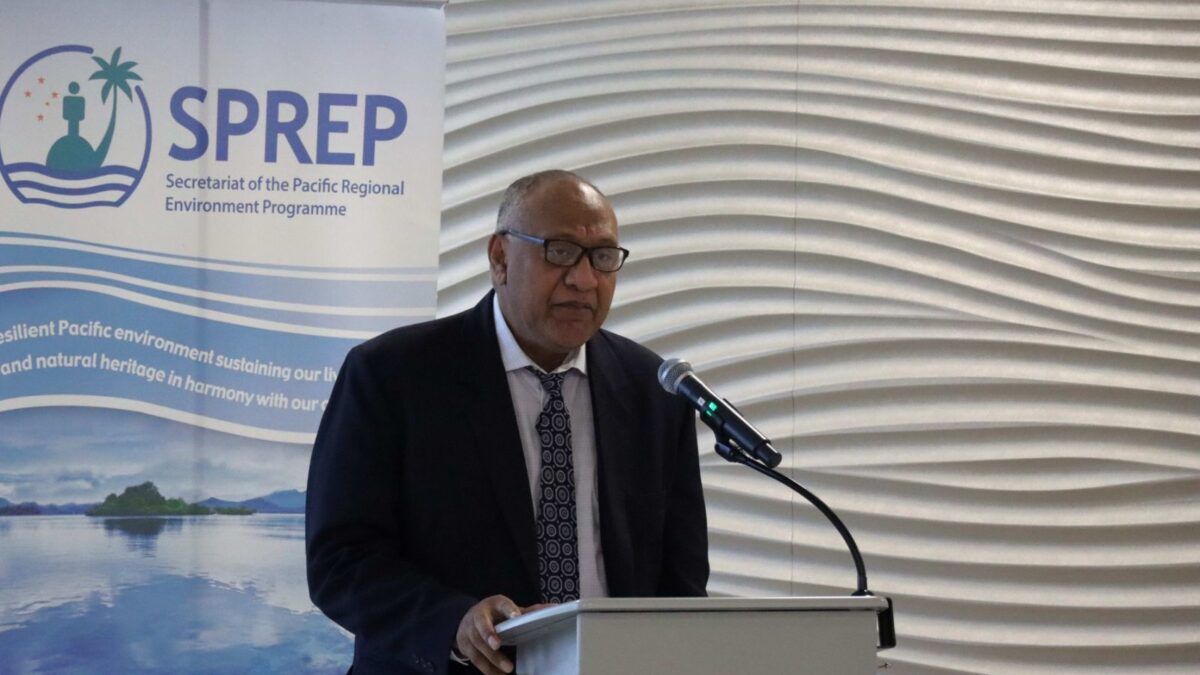
Pacific Ocean Commissioner Dr Filimon Manoni addressing the participants of the Pacific Regional Preparatory Meeting for Third Intergovernmental Negotiations on Plastics Treaty (Plastics INC 3) PHOTOS BY: SPREP
Pacific regional preparatory meeting workshop for the third meeting of the intergovernmental negotiating committee to develop a legally binding instrument on plastic pollution, including in the marine environment (Plastic INC 3)
Koror, Palau 18 – 20 October 2023
Statement by Pacific Ocean Commissioner Dr Filimon Manoni
Alii and good morning everyone!
I am very pleased to be here with you today in person in pristine Palau. I would first like to thank our host, the government and people of Palau for the warm welcome given. I also thank HE Ambassador Ilana Seid, Permanent Representative of Palau to the United Nations and Chair of the Pacific Small Island Developing States (PSIDS). Thank you for the leadership you have demonstrated in the past 10 months for the group, including in this process. Your presence today despite a very busy schedule demonstrates your and your country’s commitment to this important process.
I take also this opportunity to thank the Secretariat of the Pacific Regional Environmental Programme (SPREP) through Director General Sefa Nawadra for his Leadership and to his team for organizing this workshop and for inviting me to share a few thoughts.
And of course, I would like to thank you – in the room and on zoom – for showing up and continuing to be driven to find solutions to the plastic crisis.
Dear Friends,
We often like to say in our remarks how the meeting we are addressing is “very important”. When I say today that this gathering is important, it is not just to be gracious to everyone I have thanked. It is because we have a crisis. A plastic crisis that requires concerted efforts, including from us.
Some estimates say that 14millions tons of plastics end up in our ocean every year, with some saying this will double by 2060 under a business-as-usual scenario. As the Pacific Ocean Commissioner, I have the health of our Ocean at heart. This is concerning. This is why I am here.
Plastic pollution, including in our ocean, has repercussions far beyond debris-ravaged beaches or dramatic pictures of the great Pacific garbage patch. It represents tremendous public costs in terms of waste management, and potentially undermines critical economic sectors of our societies, including tourism or fisheries. Most importantly, plastic pollution in the ocean, in the water, in the soil and the air is a threat to human health. It is said that nowhere on Earth is untouched by plastic. Not even a mother’s womb.
And this is why this meeting and the process you are engaged in is so critical.
Friends,
Epeli Hau’ofa has reminded us that the ocean has been our connector between our sea of islands. Through traditional navigations our communities have built strong ties over centuries. Migratory species who are not only keystone species but also our families’ guardians have been able to visit our shores and guide us. Currents establish connectivity between various ecosystems. The ocean connects also generations past with those to come.
Unfortunately, ocean connectivity also means that a bag of chips blown away close to a riverbank in East Asia can find itself in the rock islands of Palau. That is the flip side of ocean connectivity that all of us have witnessed first-hand.
The world has never been as much connected as it is now. This hybrid meeting was enabled both by the internet and flight travels. There are an awful lot of plastic involved in those technologies and in many more that have contributed to making our modern lives easier and certainly more comfortable.
At what price?
The usefulness of the invention of plastic cannot be an argument to lessen the ambition of the future treaty.
Like all planetary crises, the effects are local. The responses must be global and universal. The scale of this crisis requires nothing more than a revolution.
A revolution in how we produce, in how we consume, in what we tolerate.
A revolution in how we engage with one another.
A revolution in our value systems.
The onus is often put on the individual consumer. Yes, customers, informed customers have some power. Consumers, even groups of consumers, will not alone put a dent in the system. Especially consumers from the Pacific islands. They still need to be agents of our revolution. Individual efforts may be a droplet in the vast ocean, but it will certainly have a rippling effect.
We need activists to demand that we think critically and act responsibly.
We need experts, we need science to raise the alarm bells and advise us, together with the wisdom of traditional knowledge holders, towards innovative solutions that are planet and people positive.
The private sector, from all sectors, need to re-think their business, their methodologies, their impacts.
More importantly, we need governments to act and demand actions from their private sectors and their partners. We need government to commit and lead the revolution. The one country one vote and the great Indo Pacific rivalries are great tools for this revolution, if we are willing to lead it.
This is a whole lot of responsibility on our governments. Ultimately, the choice is theirs. And we must respect it.
I appreciate the responsibility in these negotiations. As the former Attorney General of the Marshall Islands, I understand all too well how important it is to ensure that, when you engage in these international negotiations, you have to constantly think about whether you are safeguarding the interests of your country. I probably scared you with all these talks of revolution. But I have witnessed the great successes that determined PSIDS can achieve. I can only have faith. You are at the drivers’ seat because you know best what is best for your country. We are here to support.
As Pacific Ocean Commissioner, I engage with different stakeholders who all have different interests and priorities. Sometimes, those are complementary. But many times, the interests conflict. For effective ocean governance, and for the sake of our ocean and our people who depend on it, we must ensure that these different stakeholders talk, hear and compromise. If we fail to be inclusive in our decisions, we risk failure.
Our Leaders understood this. This is why they created the Pacific Ocean Alliance. This is a network of ocean stakeholders. They include representatives of your governments, regional organizations, including SPREP, civil society, academia, private sector, and partners. When the 0-draft was released, we sent a call to the members of the Pacific Ocean Alliance. Some interesting contributions were shared, which were shared with the SPREP team. What was most valuable was the interest we sense from these stakeholders in knowing more about this process and how they can contribute. The POA is not a decision-making forum. The POA is a place to debate ideas, confront views and find solutions to address the many challenges facing the Pacific Ocean. I have seen its value as it exposes us to other ideas, expertise and interests. I would be very happy to think with you how to best make use of the POA.
In concluding, I would just like to say that you have times and again demonstrated that the special circumstances that have made SIDS a special case for sustainable development are no obstacle to progress, leadership and innovation.
And with that, I wish you a very productive meeting.
Mesulang.
